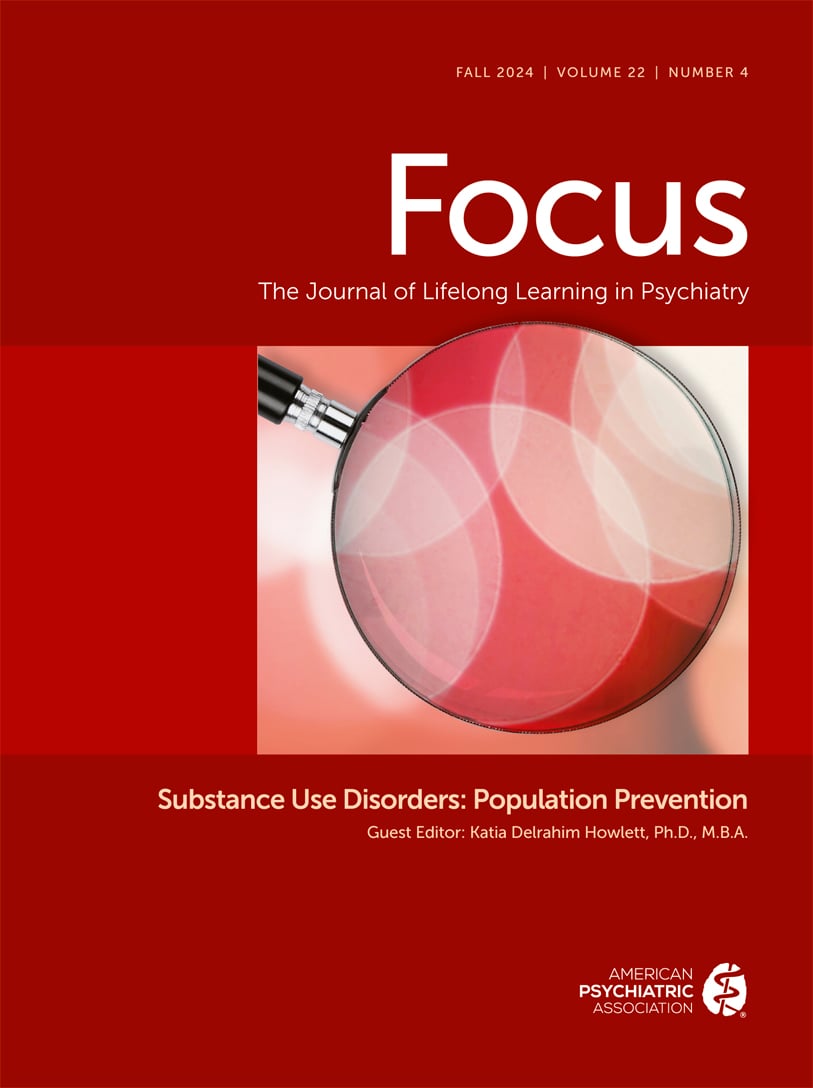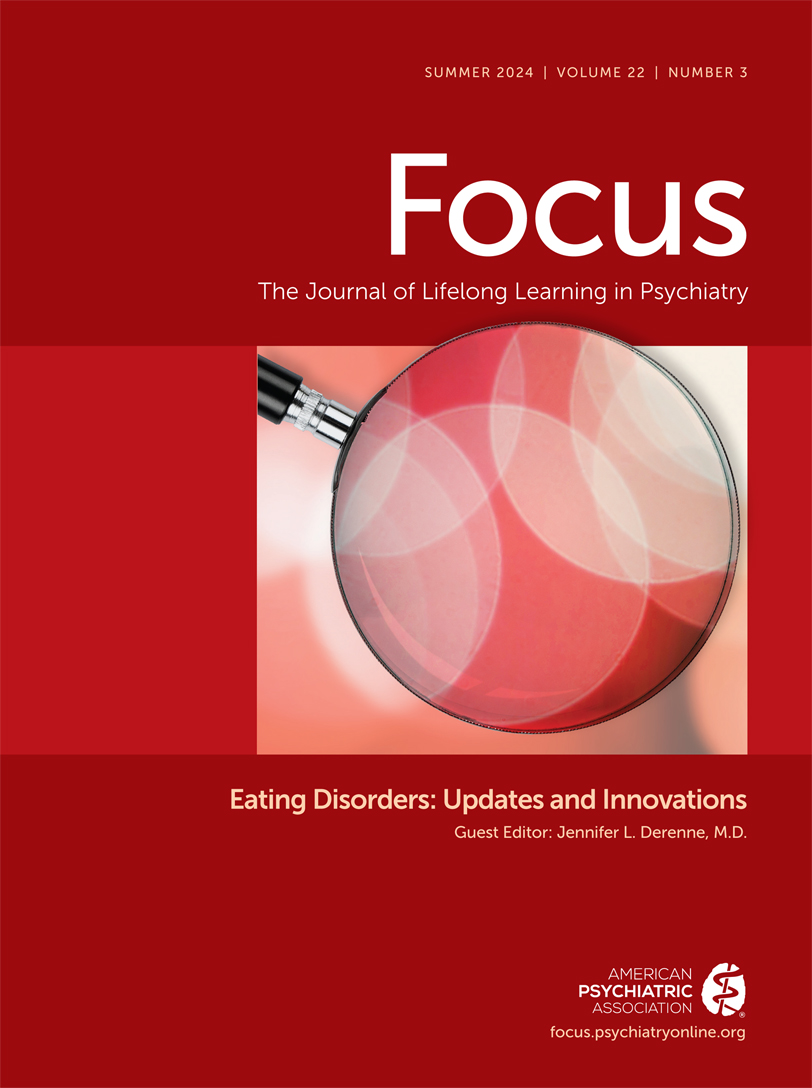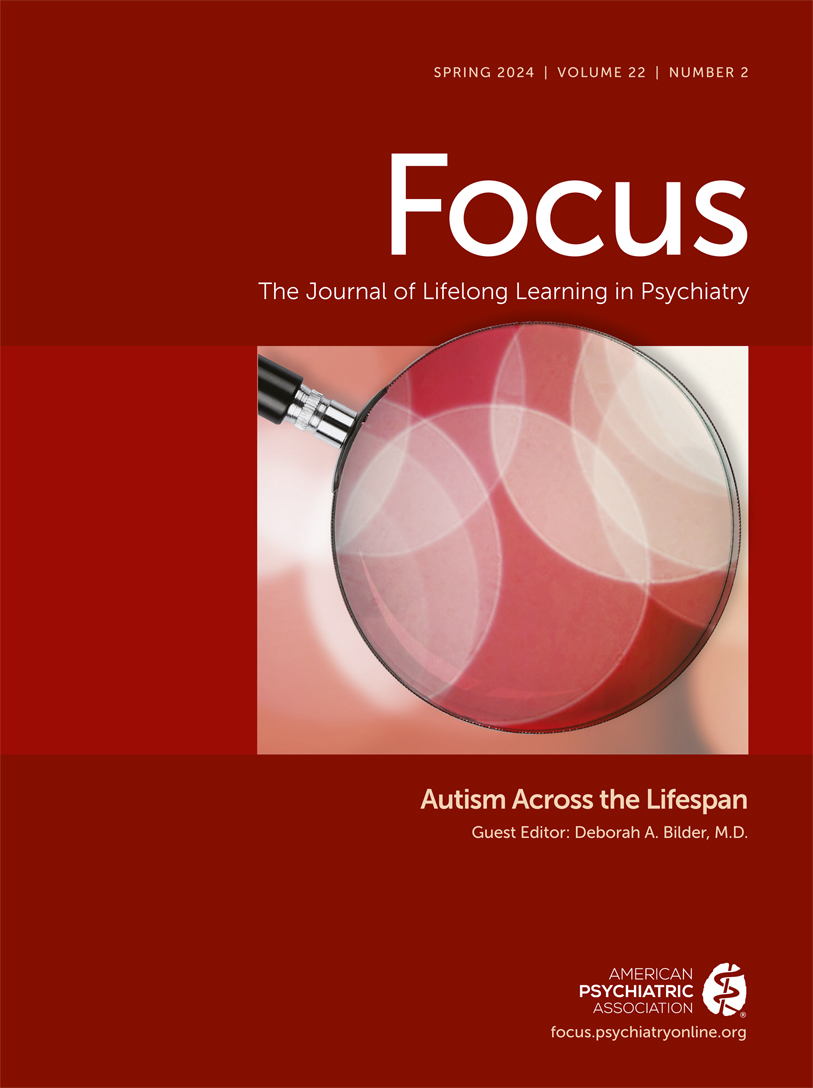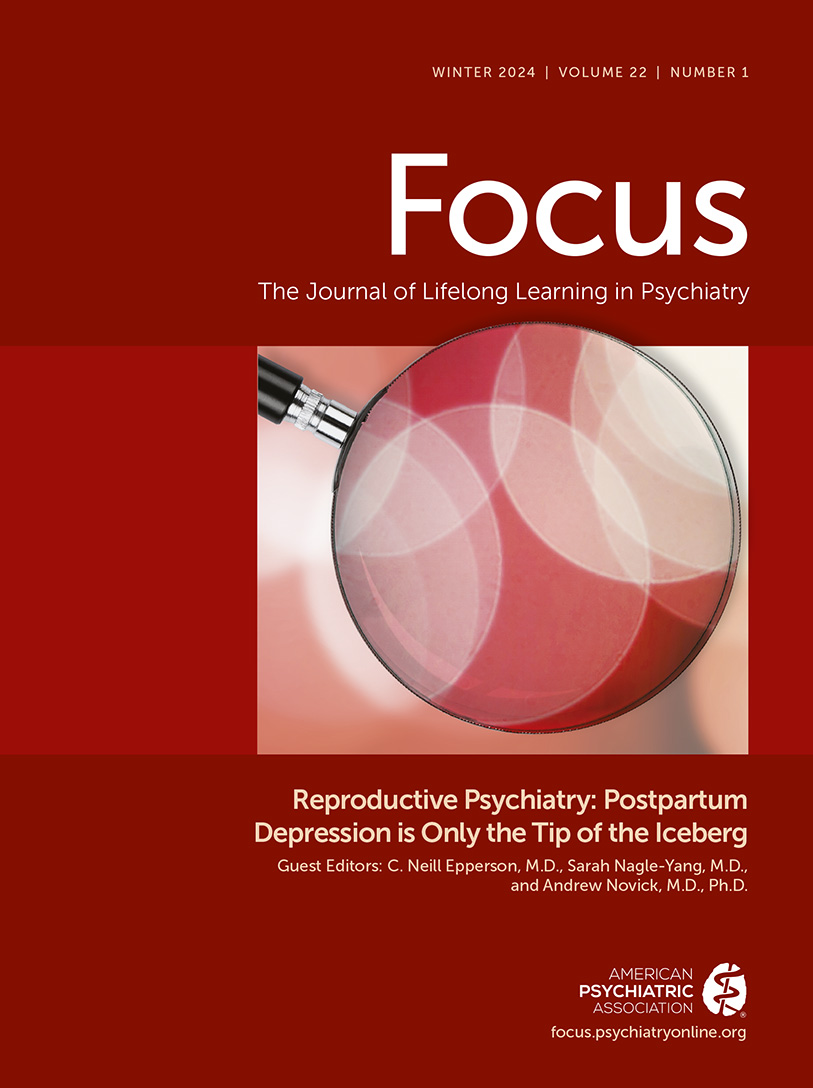Focus
- Volume 8
- Number 2
- April 2010
FROM THE GUEST EDITOR
CLINICAL SYNTHESIS
Publication date: 01 April 2010
Pages165–179An understanding of the mechanisms of personality development provides a systematic way to promote health as an integrated state of physical, mental, social, and spiritual well-being. Individual differences in personality are causal antecedents of the ...
https://doi.org/10.1176/foc.8.2.foc165Publication date: 01 April 2010
Pages180–186An interaction between individual and contextual factors is the central theme in development of personality. Molecular genetics offers the most valuable opportunity for increasing our understanding of the joint effect of nature and nurture. Sensitivity to ...
https://doi.org/10.1176/foc.8.2.foc180Publication date: 01 April 2010
Pages187–198This article provides an overview for assessing and working with personality variables in an abstinence-based addiction treatment program for professionals. Included in this discussion are the ways in which one program uses the Temperament and Character ...
https://doi.org/10.1176/foc.8.2.foc187Publication date: 01 April 2010
Pages199–215Effective clinical practice depends on tools that facilitate nonstigmatizing personality assessment, rapid development of a therapeutic alliance, and the guided development of self-awareness so that people learn how to live well. As an expert in ...
https://doi.org/10.1176/foc.8.2.foc199Publication date: 01 April 2010
Pages216–219This exercise provides a practice-based example of the principles and practice of person-centered therapy described in this issue of FOCUS. Answer the questions below, on the information provided, making your decisions taking the person-centered approach. ...
https://doi.org/10.1176/foc.8.2.foc216INFLUENTIAL PUBLICATIONS
Publication date: 01 April 2010
Pages222–225This section contains a compilation of recent publications that have shaped the thinking in the field as well as classic works that remain important to the subject reviewed in this issue. This bibliography has been compiled by experts in the field and ...
https://doi.org/10.1176/foc.8.2.foc222Publication date: 01 April 2010
Pages230–239Objective: The purpose of this article is to describe the development of the borderline personality disorder diagnosis, highlighting both the obstacles encountered and the associated achievements. Method: On the basis of a review of the literature, the ...
https://doi.org/10.1176/foc.8.2.foc230Publication date: 01 April 2010
Pages240–249Objective: To test for empirically defined temperament phenotypes and to investigate their associations with psychopathology and wellness. Method: The sample included 447 children (259 boys, 188 girls; mean age 11.0 years) recruited for a family study in ...
https://doi.org/10.1176/foc.8.2.foc240Publication date: 01 April 2010
Pages250–260Objective: The authors sought to test the hypothesis that in patients with borderline personality disorder, the ventromedial prefrontal cortex and associated regions would not be activated during a task requiring motor inhibition in the setting of negative ...
https://doi.org/10.1176/foc.8.2.foc250Publication date: 01 April 2010
Pages261–268Background: Interpersonal psychotherapy and cognitive-behavioural therapy are widely accepted as effective treatments for major depression. There is little evidence on how personality disorder or personality traits affect treatment response. Aims: To ...
https://doi.org/10.1176/foc.8.2.foc261Publication date: 01 April 2010
Pages269–275Objective: The authors describe personality development and disorders in relation to symptoms of attention deficit hyperactivity disorder (ADHD) and autism spectrum disorders. Method: Consecutive adults referred for neuropsychiatric investigation (N=240) ...
https://doi.org/10.1176/foc.8.2.foc269Publication date: 01 April 2010
Pages276–285Objective: Few studies of temperament have tested goodness-of-fit theories of child behavior problems. In this study, we test the hypothesis that interactions between child and parent temperament dimensions predict levels of child psychopathology after ...
https://doi.org/10.1176/foc.8.2.foc276Publication date: 01 April 2010
Pages286–293Objective: The goals of this study were to determine the course of illness in a cohort of depressed patients undergoing treatment for 6 months and whether there are clinically useful predictors of their course of illness. Method: A cohort of 175 depressed ...
https://doi.org/10.1176/foc.8.2.foc286Publication date: 01 April 2010
Pages294–300Recent meta-analyses have questioned the association between the dopamine receptor D4 (DRD4) gene polymorphism and the temperament trait of novelty seeking, and proposed an interaction between the polymorphism and other factors. We wanted to test whether ...
https://doi.org/10.1176/foc.8.2.foc294Past Issues
View Issues Archive
Vol. 22 | No. 4

Vol. 22 | No. 3

Vol. 22 | No. 2
